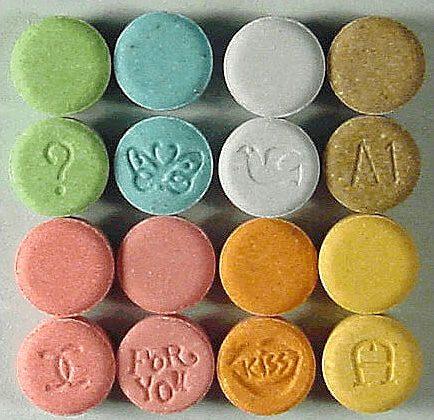Australia will become the first country to reclassify medicines containing methylenedioxymethamphetamine, more commonly known as MDMA (ecstasy) and psilocybin, to treat certain mental health conditions.
MDMA is the active ingredient found in the party drug ecstasy, and psilocybin is the active ingredient found in psychedelic “magic” mushrooms.
From July 1, authorised psychiatrists with specialised qualifications and expertise to diagnose and treat patients with severe mental health conditions will be able to prescribe medicines containing these psychedelic substances.
This comes despite those therapies not being well established.
MDMA and psilocybin are still listed as prohibited substances, but all other legal uses will remain limited to clinical trials.
Biggest Trial into Effects of Psychedelics
Australia’s Swinburne University has signed a $5 million (US$3.46 million) clinical research trial with Woke Pharmaceuticals into the effects of psilocybin, the active ingredient in psychedelic mushrooms, in treating treatment-resistant depression.During the trial, the psilocybin drug candidate WP002 will be used via a formulated rapid-release tablet by the pharmaceutical company.
“Psychedelics could transform the landscape of treatments for many psychiatric disorders, including major depression,” said Prof. Susan Rossell, the lead researcher of the research trial.
“The initial positive findings from the literature need to be pursued with large real-world trials, like the one we are conducting. Exploring the effectiveness of two or three dosing sessions will provide critical data on the sustainability of benefit and effective real-world treatment regimens of psilocybin-assisted psychotherapy for those with treatment-resistant depression.”
Not Enough Long-Term Data
However, the TGA’s decision to list the psychedelics has been met with mixed reactions by researchers and academics in the medical field, including the study’s lead researcher.Rossell has said she is concerned about broadening the treatment at a larger scale without long-term data to analyse.
Further Research is Required on the Effects
Enterprise Fellow at the University of South Australia’s Clinical and Health Sciences, Mike Musker, said the long-awaited access to MDMA and psilocybin would offer relief to many who experience PTSD and depression—especially army veterans and those who have worked in emergency services but who have not been treated with standard psychiatric medication.“The prescribing of these drugs has been prohibited for use by government drug agencies (TGA, FDA) even though early research over the last two decades has produced some promising results, the resistance to their use has remained,” Musker said.
Melbourne University’s Chair of Clinical Psychology, Prof. Kim Felmingham, said the approval of MDMA-assisted therapy for PTSD is promising and exciting, based on positive clinical results, but needed additional research to understand the mechanisms underpinning MDMA-assisted therapy to address what therapy works for each individual with PTSD.
“No one PTSD treatment is a panacea that will treat everyone with PTSD effectively, and MDMA is not an exception,” he said.
“Additional research on this topic would allow us to streamline our health resources, direct people to the most effective treatment for them and improve the accessibility of treatments for people living with PTSD.”
Meanwhile, Prof. Richard Bryant from the University of New South Wales School of Psychology said the science is at a point where we can say it is too early to be prescribing MDMA for PTSD patients.
“Instead, we should be investing in research to understand how MDMA can be used in relation to proven treatments,” Bryant said.





